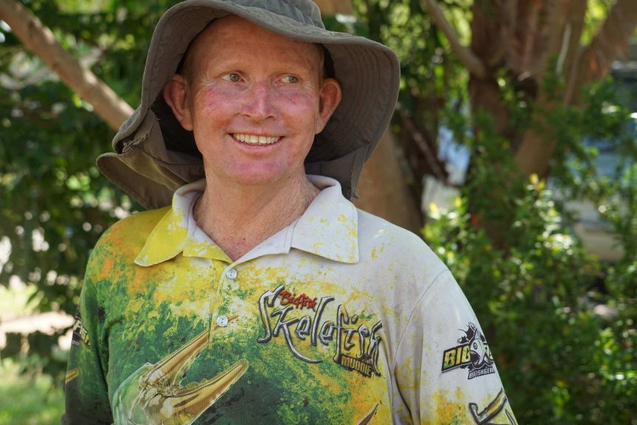
|
| The Northern Territory experienced its hottest November in more than 100 years. (ABC News: Michael Franchi) |
Key points
|
It's the highest Northern Territory November average since records began in 1910.
In November 2019, the NT's monthly temperature was 2C above average — the fifth hottest and the third-driest on record.
This November, the hot air was dragged into the Territory by two high-pressure systems, which stayed consistent for most of the month.
"Basically the cause of the warm conditions right around the Territory has been twofold, one in the north which has been a ridge on the Queensland coast which has extended into the Top End and suppressed the showers and storm activity," said BOM senior forecaster Sally Cutter.
"Down through Central Australia, there's been troughs continually forming over WA and that's turned the winds northerly, it's just dragged that really hot air down through Central Australia."

|
|
Forecaster Sally Cutter say two high-pressure systems led to
the past month's high temperatures.
(ABC News: Erik Havnen) |
Apart from small clusters in east and coastal parts of Arnhem Land,
the entire Northern Territory also experienced above-average overnight
temperatures.
Rainfall was also below average throughout the NT, except for a few regions south of the Top End and around Alice Springs, with November 2020 the eighth-lowest since records began.
"It sort of goes hand in hand, if you get those really hot temperatures, you need lack of cloud cover and therefore you get reduced amounts of rainfall," Ms Cutter said.
The lowest maximum temperature recorded at Darwin Airport was 31.9C on November 24 and its hottest was 37C on the 17th.
While in Alice Springs, the warmest daytime temperature came in at 43.5C on the 14th of November while its coolest was on the 16th when it was 28.9C.

|
|
Adam Thacker struggles to retain staff due to the hot working
conditions associated with his landscaping business.
(ABC News: Erik Havnen) |
Total Yard and Garden Care director Adam Thacker says the hotter
weather makes it hard to retain staff.
"I think the biggest thing is going to be trying to hire locals, because people from down south don't really last in the heat up here, we go through at least 20 workers a year," Mr Thacker said.
"I'm just sitting here trying to get workers, they might last a couple of days or they might do two weeks and then they burn out. They just can't handle the heat."
Vulnerable populations, such as the NT's homeless, have also been affected.
"We've had a number in the past week, our patrols had to deal with an incident on Friday afternoon that took them more than an hour, because someone had reacted because of the heat stress," said Robert Cooper, chief executive of Larrakia Nation.
"When the power was off, they had an old bloke collapsed in front of his accommodation," he said.

|
|
Robert Cooper CEO of Larrakia Nation, says their organisation
is calling for donated water to hand out to people sleeping
rough. (ABC News: Erik Havnen) |
Larrakia Nation has daily contact with people sleeping rough on the street.
"We're trying to prepare them not only for the heat but also the potential of COVID-19, and having them understand that coming into the air conditioning [in shopping centres] is not always appropriate," Mr Robert Cooper said.
Mr Cooper said Larrakia Nation was in desperate need for donated water, so his staff could distribute it among rough sleepers.
"We are currently trying to find a way to get more water out to our clients, particularly out where they're camping," he said.
"So if there's anyone out there from the supermarkets who want to help, please get in touch."
Links
- Climate change worsening Australia's extreme weather: scientists
- Severe to extreme heatwave conditions expected across south-east, eastern parts of Australia
- Queensland braces for record-breaking heatwave as Sydney enjoys short-lived reprieve
- Records set to tumble as heatwave continues across Queensland
- Birdsville breaks November overnight heat record with more hot days to come
- November heat records broken as east swelters
- Rising global temperatures tied to rising antibiotic resistance
- Heatwave continues as records set to be broken
- Sydney Records Hottest November Night As Heatwave Sweeps City
- Australia heat wave breaks records in Sydney, escalates fire danger across wide area

No comments :
Post a Comment